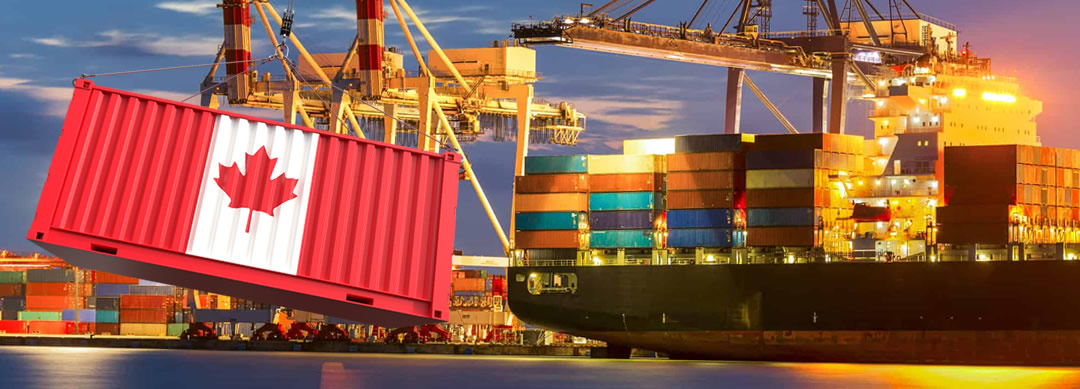The third edition of Encontro de Comércio Exterior from CCBC (CCBC’s Foreign Trade Meeting) demonstrates that, even with the pandemic, the two countries have intensified bilateral exchanges, and there is potential for an even more intense relationship in the years to come.
By Sérgio Siscaro
The trade relationship between Brazil and Canada, in recent years, demonstrates that there is plenty of room to expand the partnership between the two countries. This was the main conclusion of the participants of the third edition of Encontro de Comércio Exterior (Foreign Trade Meeting) promoted by Chamber of Commerce Brazil – Canada (CCBC), in a virtual way, on April 6. The main objective of the event was to discuss measures to ensure that this exchange can reach its full potential, which could become more concrete with the implementation of the free trade agreement between Mercosul countries and Canada, under negotiation since 2018.
These expectations are based on data that allow optimistic projections for the future. In 2000, the sum of exports and imports between the two countries was US$ (FOB) 1.656 billion; in 2020, this amount already reached US$ (FOB) 6.041 billion. Despite the Covid-19 pandemic, and its impacts on economic activity, Brazilian exports to Canada increased by 25.25%, between 2019 and 2020, reaching US$ (FOB) 4.235 billion. This proximity is also revealed in investments by Canadian companies in Brazil, both those already established in the country and newcomers, in areas as diversified as construction, transportation infrastructure, sanitation, mining, technology, and energy.
Structured to specifically address the main issues surrounding the bilateral relationship between Brazil and Canada, the 3º Encontro de Comércio Exterior (3rd Foreign Trade Meeting) presented thematic panels, which brought together participants who discussed topics such as export taxation and exchange rate policy, challenges for Brazilian foreign trade, relations between Brazil and Canada, service trade trends between the two countries, e-commerce, and cargo transportation.
In addition, the Canadian government was represented by the ambassador in Brazil, Jennifer May; the commercial and economic advisor of the embassy, Bonny Berger, and the consul-general in São Paulo, Heather Cameron. The Brazilian government, on the other hand, had three representatives at the event: from Ministério da Economia (Ministry of the Economy), Yana Dumaresq Sobral Alves, special assistant secretary at Secretaria Especial de Comércio Exterior e Assuntos Internacionais (Special Secretariat for Foreign Trade and International Affairs) (Secint), and Carlos Pio, executive secretary of Câmara de Comércio Exterior (Chamber of Foreign Trade) (Camex). From Ministério das Relações Exteriores (Ministry of Foreign Affairs), the director of Departamento de Serviços e Indústria da Secretaria de Comércio Exterior e Assuntos Econômicos (Services and Industry Department of the Secretariat of Foreign Trade and Economic Affairs), Luiz Cesar Gasser. The event was concluded by the president of CCBC, Paulo Perrotti.
Bilateral Cooperation
Recalling that 2021 will celebrate the 80th anniversary of the formal establishment of diplomatic relations between the two countries, Canada’s ambassador in Brazil, Jennifer May, detailed the various instances of cooperation, ranging from the Ottawa Group, which studies reforms in Organização Mundial do Comércio (OMC) (World Trade Organization), to actions to fight forest fires, and the signing of a memorandum of understanding between the Canadian government and Empresa Brasileira de Pesquisa Agropecuária (Embrapa) (Brazilian Agricultural Research Corporation), among other initiatives. But the most important was the state of the negotiations of the free trade agreement between the Mercosul countries and Canada. “We have already held seven rounds of negotiations, which were interrupted last year because of the pandemic. But the work continues, and the agreement, modern and ambitious, remains a priority for Canada”, she said.
Regarding the opportunities for expanding economic cooperation between the two countries, the ambassador was quite optimistic. By quoting data proving the growth of both trade and investment flows between Brazil and Canada, May assessed that even with the pandemic of the new coronavirus, 2020 was a positive year. “There are many opportunities to be explored”.
Counsellor Berger, also from the Canadian embassy, stressed that the future signing of the agreement with Mercosul is part of Canada’s strategy to diversify its trade partners around the world. “We consider partnerships with other important countries. Brazil, for example, is one of the few countries that participates in the Canadian International Innovation Program (CiIP)”, she affirmed. This initiative supports Canadian companies that develop projects in collaboration with partners in Brazil, China, South Korea, India, and Israel.
On the Brazilian side, this assessment was shared by Gasser from Ministério das Relações Exteriores (Ministry of Foreign Affairs). “Our relationship is founded on converging values and principles”. Mentioning the two countries’ investment figures for 2020, which reach $12 billion from Canada to Brazil, and $15.4 billion from Brazil to Canada, he was optimistic about the rise of this exchange. “The solidity of these investment flows should be seen as a milestone in the bilateral relationship”, he said. He also added the opportunities that the federal government is opening for investments in different areas, such as in the concession of infrastructure projects.
Post-pandemic opportunities
A study prepared by Confederação Nacional da Indústria (CNI) (National Confederation of Industry) revealed that the exchange of services offers an important potential for growth in the bilateral relationship, in the coming years. In this sense, the manager of Negociações Internacionais (International Negotiations) of CNI, Fabrizio Sardelli Panzini, pointed out that the largest share (43.6%) of Brazilian exports between 2015 and 2019 was concentrated in the provision of auxiliary data processing services, which accounted in this period, an amount of US$ 750.3 million. In the opposite direction, the leasing of telecommunications equipment without an operator accounted for 14.4% of Canadian exports of services to Brazil, representing US$ 171.6 million.
“In order to raise the level of market access for both countries, there are six specific proposals in the chapter on trade in services in the proposed Mercosul-Canada agreement”, he explained. These proposals involve facilitating the transit of service providers, limitation of the requirement for local presence, reduction of sea freight costs, equivalence of professional diplomas, opening of the telecommunications market (with reduced roaming costs for mobile telephony), and facilitation of the processes for issuing work visas between the two countries.
Also addressing this theme, director Marcel Motta, from Euromonitor International, considered the need for a change in awareness of Brazilian companies, which are still excessively attached to the potentialities of the domestic market, and unaware of the opportunities of the foreign market. “We consider the Brazilian and Canadian markets as one single market, in order to highlight the opportunities, they offer to companies from both countries”, he stated. “If we consider the industrialized food sector of both countries in 2020, for example, we can see a market of US$ 82 billion in Brazil, and US$ 50 billion in Canada. That is, together, they represent a market of US$ 132 billion, which would make it the fourth largest in the world, being only behind the United States, China, and Japan”, he evaluated. He also believes that it is important to keep in mind the high purchasing power of Canadian consumers and their capacity to consume more expensive products.
Relevant themes
It is also important to highlight the discussions on transport logistics between the two countries, which counted on the participation of Air Canada’s cargo operations manager, Marcelo de Lina; the cargo development manager of the Canadian port of Saint John, Shannon Blanchard; and the managing director of Mellohawk Logistics, Arnon Melo. On the occasion, issues such as the reduction of cargo flights between Brazil and Canada due to the pandemic, the possibilities opened to Brazilian exporters by the port of Saint John, and the opportunities to reduce logistics costs were raised.
The tax aspects of foreign trade were debated by the lawyer Cora Mendes, from Pinheiro Neto Advogados law firm; the partner-director of the Trade & Customs area of KPMG consulting firm, Daniel Maia, and the expert technical advisor of Diretoria de Economia, Regulação Prudencial e Riscos da Federação Brasileira de Bancos (Febraban) (Directorate of Economics, Prudential Regulation and Risks of the Brazilian Federation of Banks), Marcelo Ferreira Lima. The growth of e-commerce during the pandemic and its future prospects were analyzed by the president of ABComm, Maurício Salvador.





